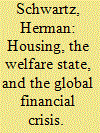|
|
|
Sort Order |
|
|
|
Items / Page
|
|
|
|
|
|
|
| Srl | Item |
| 1 |
ID:
099352


|
|
|
|
|
| Publication |
2010.
|
| Summary/Abstract |
Over the last three decades, privatization and restructuring of electricity sectors has been a hot topic. The expectation was that prices would fall due to increased competition and that generators would become more innovative and efficient. However, the enthusiasm for deregulation wavered after events such as the debacle in California, the fall of Enron and the setbacks of Ontario. In the Philippines, comprehensive legislation was passed in 2001 but the implementation has been rather slow and controversial. This paper looked at the allegation of politicizing power rates and found a logical alternative to the perceived conspiracy angle. Based on market data, it is highly probable that depressed market rates was a result of coping mechanisms of new players trying to adjust to the restructured industry.
|
|
|
|
|
|
|
|
|
|
|
|
|
|
|
|
| 2 |
ID:
092768


|
|
|
|
|
| Publication |
2009.
|
| Summary/Abstract |
Many economists such as Wilson (2002) [Wilson, R., 2002. Architecture of power market, Econometrica, 70, 1299-1340] have considered that there are similarities between electricity and gas services in the US electric utility industry. Hence, they expect a synergy effect between them. However, the two businesses do not have technology similarities at the level that the gas service produces a synergy effect with electricity. To examine whether there is a synergy effect of corporate diversification in the industry, we compare electricity-specialized firms with diversified utility firms in terms of their financial performance and corporate value. The comparison indicates that core business concentration is more effective for electric utility firms than corporate diversification under the current US deregulation policy.
|
|
|
|
|
|
|
|
|
|
|
|
|
|
|
|
| 3 |
ID:
104905


|
|
|
|
|
| Publication |
2011.
|
| Summary/Abstract |
In this article, we discuss the "cycle hypothesis" in electricity generation, which states that the introduction of deregulation in an electricity system might lead to sustained fluctuations of over- and under-capacity. The occurrence of cycles is one of the major threats for electricity markets as it affects the security of supply, and creates uncertainty in both the profitability of electricity companies and in consumer prices. We discuss the background for these cycles using analogies with other capital-intensive industries, along with evidence from the analysis of behavioral simulation models as well as from experimental electricity markets. Using data from the oldest deregulated markets we find support for the hypothesis in the case of the English and Chilean markets, based on an autocorrelation analysis. Evidence from the Nordpool market is more ambiguous, although we might be observing the first half of a cycle in generation capacity. Comparing a simulation of the English market performed in 1992 with the actual performance we can observe that the qualitative behavior of the model is consistent with the actual evolution. Finally, we discuss possible mechanisms for damping cycles in electricity generation, such as mothballing, capacity payments, and reliability markets.
|
|
|
|
|
|
|
|
|
|
|
|
|
|
|
|
| 4 |
ID:
121744


|
|
|
|
|
| Publication |
2013.
|
| Summary/Abstract |
The long-standing severe power shortage in China has provoked much debate on whether China should further promote market-oriented electricity reform. The present paper addresses this issue by analyzing the impacts of deregulation of the electricity generation sector and retailing activities on other sectors, the macroeconomy and electricity users. A counterfactual scenario analysis is used based on a simplified computable general equilibrium framework. We find that deregulation can significantly improve the efficiency of electricity production, increase employment and enhance household welfare. These nontrivial findings can help to resolve many controversies about governmental intervention during China's economic transition. Our findings have two implications relating to policy feasibility and applicability; that is, competition in the electricity retail market should be phased in, and the necessary arrangements for unemployment in incumbent firms should be considered.
|
|
|
|
|
|
|
|
|
|
|
|
|
|
|
|
| 5 |
ID:
088056


|
|
|
|
|
| Publication |
2009.
|
| Summary/Abstract |
For the last 20 years, countless countries have been carrying out structural reforms in the natural gas industry, trying to achieve efficiency and economic rationality with the introduction of competition. The objective of the paper is to present an approach to the development of competition and infrastructure of the Brazilian natural gas industry. This approach is based on a market projection to 2011, on the international experience and on the characteristics of the Brazilian market, infrastructure and regulatory framework. Possible impacts of the proposed measures are also provided. According to the market projection carried out in this paper, in 2011 there will be a possible surplus of natural gas in the country, which includes a dependence diminishing of the Bolivian gas supply. This gas surplus, allied to an upcoming Gas Law and the trade liberalization in the states of São Paulo and Rio de Janeiro, can stimulate the development of competition, if some changes that proposed in this paper are made in the current Gas Bills. The approach proposed herein seeks to stimulate non-discriminatory open access, focused on information transparency and tariff regulation to help the development of infrastructure and competition.
|
|
|
|
|
|
|
|
|
|
|
|
|
|
|
|
| 6 |
ID:
176799


|
|
|
|
|
| Summary/Abstract |
A major concern with electricity market restructuring has been the possibility that fuel price volatility may leak into electricity prices. This view is credible if electricity price – fuel costs relation is stronger in restructured than in non-restructured states. We examine the validity of this view using panel data on for industrial, residential and commercial sectors in US states. The analysis accounts for cross-sectional dependency, cross-state heterogeneity, and interdependency of state fuel markets. The common correlated effects mean-group estimates suggest that (1) coal and natural gas costs Granger-cause electricity prices for industrial and commercial customers in both non-restructured and restructured states; (2) both fuel costs also Granger-cause electricity prices for residential customers in non-restructured states but only natural gas costs cause electricity prices in restructured states; (3) the long-run impacts of fuel costs on electricity prices are higher in non-restructured than restructured states; and (4) electricity prices exhibit lower persistence in non-restructured than in restructured states. These results are do not support the view of higher integration between input costs and electricity prices in restructured markets. Policymakers should be aware of the differences in electricity price response in alternative market structures when implementing new federal policies.
|
|
|
|
|
|
|
|
|
|
|
|
|
|
|
|
| 7 |
ID:
166955


|
|
|
|
|
| Summary/Abstract |
Community choice aggregation (CCA) is an emerging model of energy procurement that allows local governmental entities to procure electricity on behalf of retail electricity customers. Through CCA, local governments can control local electricity portfolios while investor-owned utilities remain responsible for transmission and distribution. In this article, we use a combination of publicly-available data, data obtained directly from CCAs, and stakeholder interviews to explore the rise of CCAs, the current and potential future impacts of CCAs on demand for renewable energy, and the factors that will determine future CCA expansion. We estimate that CCAs procured about 42 million megawatt-hours of electricity on behalf of about 5 million customers in the United States in 2017. We estimate that CCAs already procure about 8.9 million megawatt-hours more renewable energy than required by state mandates, and that CCAs could procure as much as 28.9 million megawatt-hours of voluntary renewable energy if the CCA model is permitted in more states. The ongoing expansion of CCAs could significantly affect electricity markets, electricity portfolios, and the future role of utilities. We explore various challenges associated with the further expansion of CCAs.
|
|
|
|
|
|
|
|
|
|
|
|
|
|
|
|
| 8 |
ID:
094221


|
|
|
|
|
| Publication |
2010.
|
| Summary/Abstract |
Deregulation in energy markets has entailed important changes in the way agents conduct business. Price risk arises as a result of fluctuations in the future price of electricity and agents assume long or short positions in the forward and spot markets to hedge their exposure to price risk. The presence of forward risk premium in prices is evidence of the fact that agents act in the market according to risk considerations. This work aims to analyse the information content of the difference between the forward and spot prices (the so-called forward premium) regarding the agents' decisions. We find that the sign and magnitude of the ex post forward premium depend on the unexpected variation in demand and on the unexpected variation in the hydroelectric capacity, and that both the ex post and the ex ante forward premia are negatively related to the variance of spot price, as Bessembinder and Lemmon (2002) predict. We provide additional insights about relevant aspects of spot price pricing in the Spanish electricity market such as the positive relation between spot prices and CO2 emission allowance prices or the impact on spot prices of the set of market matching rules introduced in March 2006.
|
|
|
|
|
|
|
|
|
|
|
|
|
|
|
|
| 9 |
ID:
110869


|
|
|
|
|
| Publication |
2012.
|
| Summary/Abstract |
Analyses of the global financial crisis that assign causality to the erosion of parts of the welfare state that protected individuals miss the importance of macro level regulation that protected firms and the financial system from itself. Post-Depression macro level regulation of finance prevented the emergence of mismatched maturities where deposits lacked state guarantees, and thus prevented runs on banks or near-banks. A balance sheet approach shows that macro regulation linked long duration liabilities in housing finance (mortgages) to long duration assets (pensions). Deregulation permitted the reemergence of mismatched maturities, providing both a necessary and sufficient condition for the current financial crisis.
|
|
|
|
|
|
|
|
|
|
|
|
|
|
|
|
| 10 |
ID:
052306


|
|
|
| 11 |
ID:
103617


|
|
|
|
|
| Publication |
2011.
|
| Summary/Abstract |
Sueyoshi et al. (2009) have examined a synergy effect between electricity and gas services in the US electric utility industry. They have compared electricity-specialized firms with diversified utility firms in their financial performance and corporate value. A problem of their study is that it has not empirically measured the operational performance of the electric utility firms. As an extension of the preceding study, this research investigates the operational performance of 104 US electric utility firms (1990-2004) by fully utilizing DEA (Data Envelopment Analysis). This study finds the three new policy implications. First, the synergy effect has not existed in the operational performance of diversified utility firms before and after the deregulation on the US electricity markets. Thus, core business concentration is more effective for electric utility firms than corporate diversification to enhance their operational performance under the current US deregulation policy. Second, the operational performance has had an increasing trend until 1996 and a decreasing trend after 1996. Thus, the US deregulation policy has been influential on their operational performance. Third, the enhancement in operational performance of electric utility firms has improved their financial performance. The improvement in financial performance has increased their corporate value. Thus, this study finds the business causality among operational performance, financial performance and corporate value in the US electric utility industry.
|
|
|
|
|
|
|
|
|
|
|
|
|
|
|
|
| 12 |
ID:
174954


|
|
|
|
|
| Summary/Abstract |
China's electricity demand has grown rapidly over only two decades and is currently the largest in the world. This was largely owing to a framework of regulation in which governments regulated prices and quantities, and there was ample incentive for investment. As the growth in electricity demand has slowed and the use of renewable energy has been impeded by integration-related challenges, China has embarked on a new round of power sector reform, with a focus on market construction. Considering four years of market experiments at the provincial level, we review the backgrounds and goals of the reforms, as well as the current progress toward meeting the initial targets. Then, we discuss the key challenges to be overcome to achieve complete implementation of the reforms, with special emphasis on the system of dispatch. We recommend that China's reforms, in order to achieve the goal of market-based competition, must embrace short-term markets, a greater role for independent regulation, compatibility with renewable energy, and inter-provincial coordination.
|
|
|
|
|
|
|
|
|
|
|
|
|
|
|
|
| 13 |
ID:
088985


|
|
|
|
|
| Publication |
2009.
|
| Summary/Abstract |
Deregulation of Japanese electric power industry began in 1995. After the amendment of Electricity Utility Industry Law in 1995, competition was partially introduced in a generation sector and retail competition started from 2000. Eligibility to choose suppliers was gradually extended from larger to smaller customers. As of 2008, almost all customers except households can choose their electricity suppliers. Based upon both previous implementation result of competition policy and review on their achievement, Japanese government will begin new policy debate in 2013 to assess further retail competition which includes household customers. To prepare for policy suggestion on the future electric power industry, this study examines the cost structure of Japanese electricity distribution. For the purpose, we estimate a multi-product translog cost function of Japanese electricity distribution from 1983 to 2003. Using the estimated cost function, we calculate several economic measures such as productivity growth, technical change and economies of scale and scope. The empirical results of this study indicate the improvement in productivity growth after deregulation.
|
|
|
|
|
|
|
|
|
|
|
|
|
|
|
|
| 14 |
ID:
159773


|
|
|
|
|
| Summary/Abstract |
Despite successive attempts to effectively manage Nigeria’s downstream oil sector by strengthening the country’s institutional capacity, the Nigerian public institutions remain ineffective, inefficient, wasteful, incapacitated, inept, unprofessional and uninspired to drive the reform in the downstream oil sector. Public institutions have failed to successively oversee management of the downstream oil sector. This paper draws on the new public management theory and unstructured interviews to assess the role of public institutions in the distribution and marketing segments of the oil sector. It concludes that poor public sector performance is responsible for the crisis in the oil industry that led to subsidy cuts and efforts to deregulate the downstream oil sector.
|
|
|
|
|
|
|
|
|
|
|
|
|
|
|
|
| 15 |
ID:
177478


|
|
|
|
|
| Summary/Abstract |
Electricity markets are complex; they involve long lead-times, include feedbacks that are generally hard to interpret and are influenced by environmental concerns and political objectives. After liberalization, the markets moved from a monopoly situation with a single service provider and captive customers to competitive markets with multiple service providers. Foreseeing the consequences of regulatory decisions is thus becoming increasingly complicated for the regulator. However, understanding these is central to avoid mismatches between the markets and their regulation, which could result in unanticipated and costly long-term consequences.
|
|
|
|
|
|
|
|
|
|
|
|
|
|
|
|
|
|
|
|
|